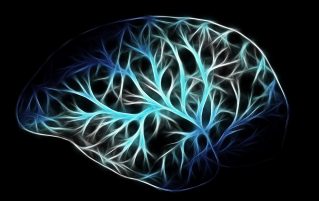

The nervous system is made up of the brain, the spinal cord and a network of neurons (nerve cells), that run throughout your body. The nervous system is really important as it allows your body to send observations and information to the brain or the spinal cord. This enables communication.
Did you know that it is thought that there are more nerve cells in the human brain than there are stars in the Milky Way. That is a lot of nerve cells. Apparently there are 100 billion neurons just in your brain! If we lined up all the neurons in our body it would be around 965 km long.
During our first year of life our brain almost triples in size. However ,we lose neurons as we age, starting at around 20 years old in humans. By the time we are 75 almost 1/10 of our neurons are gone!!
GCSE scientists, you need to know information about the nervous system. You should be able to describe the differences between sensory, relay and motor neurons, You should also be able explain what a reflex arc is, and how it helps to keep us safe.
To help you understand, check out Part 1 of our “How to work with the Nervous System” guide. This describes the structure of different neurons and the pathway of a reflex arc. It also includes some GCSE questions and answers for you to check your understanding.
Click on the picture below to see the guide.
If you found this useful and think you would benefit from some additional help, please contact us.
Guest bloggers are welcome.
